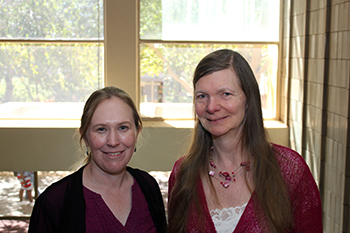Latest News Archive
Please select Category, Year, and then Month to display items
![]()
#UFSupdate (18 March 2020): UFS IMPLEMENTS MEASURES TO MINIMISE RISK OF COVID-19 TO STAFF
STATEMENT BY PROF FRANCIS PETERSEN, RECTOR AND VICE-CHANCELLOR
The executive management of the University of the Free State (UFS) welcomes the announcement of Dr Blade Nzimande, Minister of Higher Education, Science and Technology on 17 March 2020 that all post-school training institutions will have an early recess, starting on 18 March 2020. The Minister’s directive that universities should minimise risk of COVID-19 to all its staff during this time is also welcomed.
The announcement of Dr Nzimande is in line with the university’s decision on 16 March 2020 to suspend the academic programme as from 17 March 2020 and to resume it again on 14 April 2020.
It is important for us all to know that this is not business as usual, and that different thinking is required. Responsible citizenship is one of the crucial elements the world has increasingly been experiencing for the past few weeks. This is why we must act out our responsibility towards one another by focusing on ways in which social distancing can be achieved – especially during this low-risk period that South Africa is still experiencing. This is one of the reasons that informed the university’s decision on 16 March 2020 week to suspend the academic programme and also for students to vacate the residences by 20 March 2020.
The health and well-being of our staff members are equally important. The university’s Employee Task Team that was established on 16 March 2020 analysed options for the continuation of university operations during the recess period. These options were submitted to the executive management, discussed with the Chairperson of the UFS Council and approved on 18 March 2020.
Staff members who have children at school and pre-school may work from home on 19 and 20 March 2020. For the period 23 March 2020 to 13 April 2020, the number of staff members present on all three campuses will be reduced to a minimum and staff members may be allowed to work from home where practically possible.
Arrangements have been made to accommodate those staff members who are performing services which cannot be done from home (such as cleaning, gardening, maintenance, sports, etc) in a flexible and reasonable way. Similar arrangements will be made with office-based support services staff, prioritising institutional needs and based on humane and personal circumstances. Academic staff have been requested to ensure that the online learning materials are finalised and made available for the online learning platform.
The decision for employees to work from home is based on the premise that all employees are deemed to be at work from 23 March 2020 to 13 April 2020. This requires staff members to be available and contactable by line managers at all times during the university’s normal working hours.
I am comfortable that these measures will alleviate the concerns from our staff regarding the spreading of COVID-19 and the risk to themselves without compromising university operations.
Prof F W Petersen
Rector and Vice-Chancellor
University of the Free State
Chemistry postgraduates tackle crystallography with eminent international researcher
2017-04-04

Department of Chemistry senior lecturer, Dr Alice Brink(left),
hosted outstanding researcher, Prof Elspeth Garman (right)
from the University of Oxford in England to present a
crystallography lecture.
Photo: Rulanzen Martin
“Crystallography forms part of everyday life.” This is according to Prof Elspeth Garman, eminent researcher from the Department of Biochemistry, University of Oxford in England, who was hosted by Dr Alice Brink, Department of Chemistry at the University of the Free State (UFS) Bloemfontein Campus. Prof Garman presented a lecture in the Department of Chemistry, titled ‘104 years of crystallography: What has it taught us and where will it lead’. She also taught the postgraduate students how to refine and mount protein structures in cold cryo conditions at about -173°C.
What is Crystallography?
Crystallography is the scientific technique which allows for the position of atoms to be determined in any matter which is crystalline.
“You cannot complete Protein Crystallography without the five key steps, namely obtaining a pure protein, growing the crystal, collecting the data, and finally determining the structure and atomic coordinates,” said Prof Garman. Apart from teaching, she was also here to mentor and have discussions with UFS Prestige Scholars on how to face academic challenges in the professional environment.
Discovery of the first crystal structure of a TB protein
Prof Garman successfully determined the first crystal structure of a Tuberculosis protein (TBNAT), a project that took about 15 years of research. In partnership with the Department of Pharmacology at Oxford University and an outstanding PhD student, Areej Abuhammad, they managed to grow only one TBNAT crystal, one-fiftieth of a millimetre. They also managed to solve the structure and publish it.
Dr Alice Brink, Senior Lecturer in the Department of Chemistry, says, “It’s an incredible privilege to have Prof Garman here and to have her share her wisdom and knowledge so freely with the young academics.”